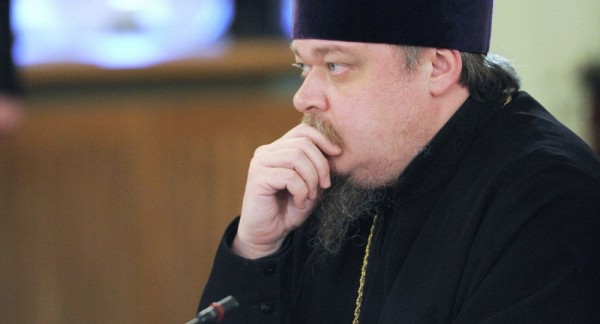“It’s better to do without the death penalty, but there are situations when the threats to society are too strong and it can use this method to defend itself,” the priest told Interfax-Religion on Friday.
He recalled that the foundations of the social policies of the Russian church state that the death penalty was recognized in the Old Testament and there are no indications that it should be abolished in the New Testament, the Holy Tradition and the Historical Heritage of the Orthodox Church.
Father Vsevolod said the death penalty for robbers was first introduced in Russia under Holy Prince Vladimir at the insistence of bishops, who told him: “You were appointed by God to execute evil people and to have mercy on good people. You should execute robbers, but only with a trial. Before that, robbers were punished with fines.
According to the church document, “mercy on a fallen person is always more preferable than vengeance.” At the same time, it is recognized that the issue of the abolition or non-use of the death penalty “should be decided by society freely, with regard for the state of the crime, the law enforcement and judicial systems, and first and foremost of the protection of the lives of law-abiding members of society.”
“We should discuss and decide on this issue, evaluating the threats, security level in society and various methods of ensuring it again in the same free manner. Terrorists, and also organizers and sponsors of terrorist attacks can and should just be eliminated without any trial and without any procedure in situations when law enforcement bodies have determined that we are talking about people who pose danger to the public,” the church representative said.
Nun Ksenia (Chernega), the head of the Legal Service of the Moscow Patriarchate, recalled in a conversation with Interfax-Religion that the death penalty as an exceptional measure of punishment for grave crimes encroaching on human life is envisaged by Article 59 of the Russian Criminal Code. Russia assumed an obligation to sign and ratify Protocol No. 6 of the Convention on Human Rights dealing with the abolition of the death penalty in peacetime and declared a moratorium on the fulfillment of death penalty sentences from the day of its accession to the Council of Europe when it entered in 1996.
“However, Protocol No. 6 has not been ratified yet. On the other hand, the Russian Constitutional Court has issued decrees declaring a moratorium on the use of the death penalty in Russia. I believe that there are sufficient legal grounds for lifting the moratorium and using Article 59 of the Russian Criminal Code as regards the ordering of punishment in the form of the death penalty provided that there is political will. Especially bearing in mind that the death penalty is used in countries such as the U.S., China and Japan,” she said.

















